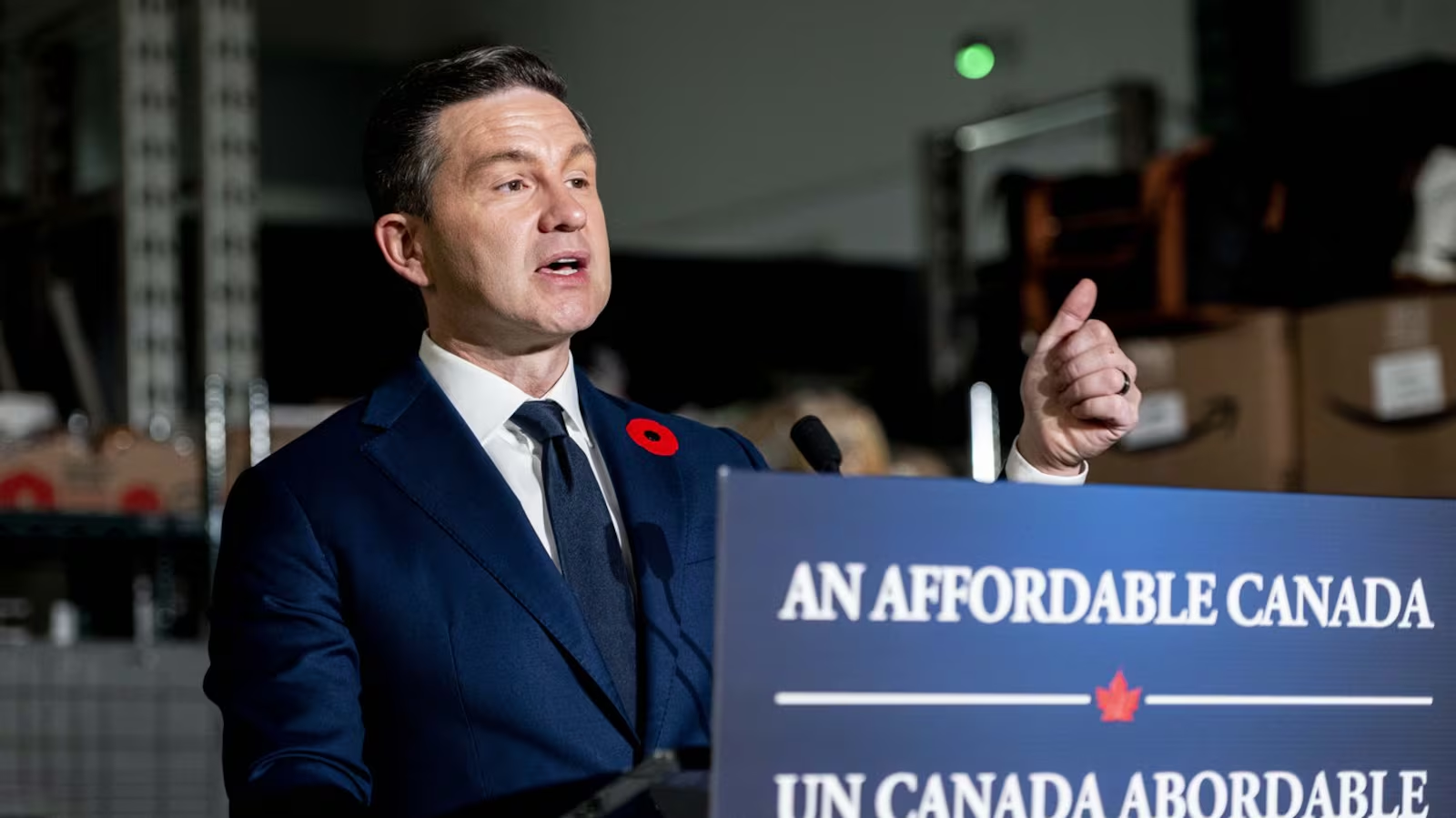Conservative Leader Pierre Poilievre delivered a sharp critique of Prime Minister Mark Carney’s first federal budget on Friday, accusing the Liberal government of burdening Canadians with record deficits and stifling the free market with unnecessary bureaucracy.
Speaking to a business audience at the Economic Club of Canada in Toronto — just a few blocks away from where Carney was simultaneously promoting his fiscal vision at the Canadian Club — Poilievre contrasted his economic philosophy with the Liberals’, casting himself as the defender of free enterprise and fiscal restraint.
“What you really have as a difference between us, between the Carney Liberals and the Poilievre Conservatives, is this,” Poilievre said. “They create obstacles for you, then hand out subsidies to help you climb over them. We should do none of the above — we should get out of the way and off your back.”
The Conservative leader condemned the government’s projected $78.3 billion deficit — the largest in Canadian history — calling it reckless spending that “will burden taxpayers for generations.” He argued that the Liberals’ plan to inject nearly $90 billion in new spending over five years was “not an investment, but an indulgence,” warning that it would deepen inflationary pressures and hurt productivity.
“This will be the most costly five years, if allowed to happen, in any of Canada’s history,” Poilievre said. “This isn’t because of tariffs or trade wars — it’s because of runaway government spending.”
Credit rating agency Fitch issued a warning on Thursday about Canada’s rising debt load, saying persistent fiscal expansion could put pressure on the country’s AA+ credit rating. The agency noted that the government’s plan “may be exacerbated by economic underperformance and low productivity.”
Carney, for his part, defended his government’s fiscal path during his Toronto appearance, insisting that Canada’s debt-to-GDP ratio remains stable and that the deficit is justified by long-term investments. “We are only running a deficit for investment,” he said. “The world has changed, and Canada must restructure its economy by investing — not retreating.”
Poilievre countered that Carney’s approach relies too heavily on bureaucracy. He accused the government of “creating new agencies and red tape” to manage housing and industry, instead of empowering the private sector to drive growth.
He pledged to eliminate the federal carbon tax, streamline resource development, and allow Canadian energy producers to export oil and liquefied natural gas to Asian markets. He also called for housing construction to be tax-free and criticized the government’s plan to waive sales tax only for certain first-time homebuyers as “a token gesture that barely scratches the surface.”
On digital finance, Poilievre voiced support for developing a stablecoin framework to modernize Canada’s slow payment systems but warned against any move toward a central bank digital currency. “It should promote competition and reduce costs — not give more power to the Bank of Canada,” he said.
The speech came as Poilievre’s party faced internal turbulence. Two Conservative MPs — Chris d’Entremont and Matt Jeneroux — left the caucus this week, deepening questions about party unity amid the budget showdown.
Shortly after Poilievre’s remarks, the House of Commons voted down a Bloc Québécois motion to reject the Liberal budget. The Conservatives sided with the government to defeat the amendment, postponing a final budget vote expected next week.
For Poilievre, the message was clear: Canada’s economic future, he said, must be driven by markets — not by “Mark Carney’s managed economy.”

